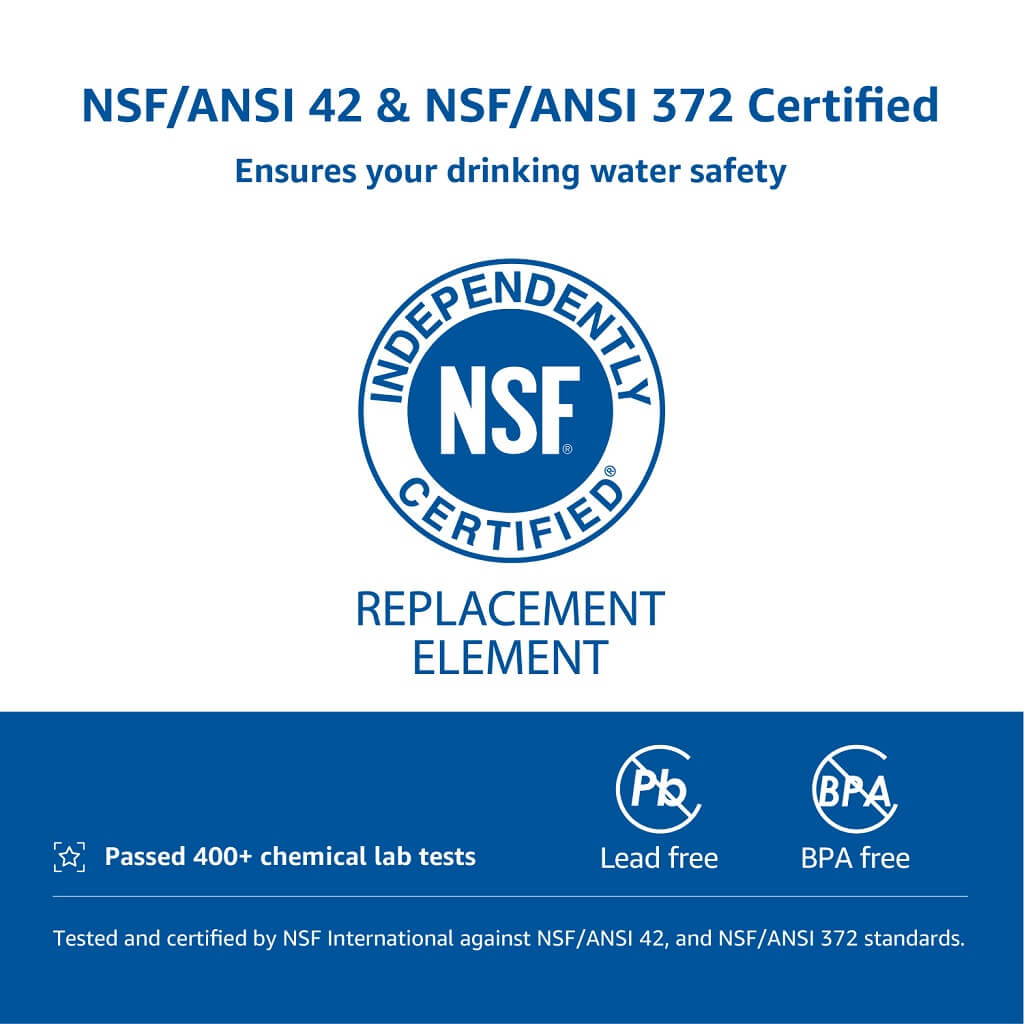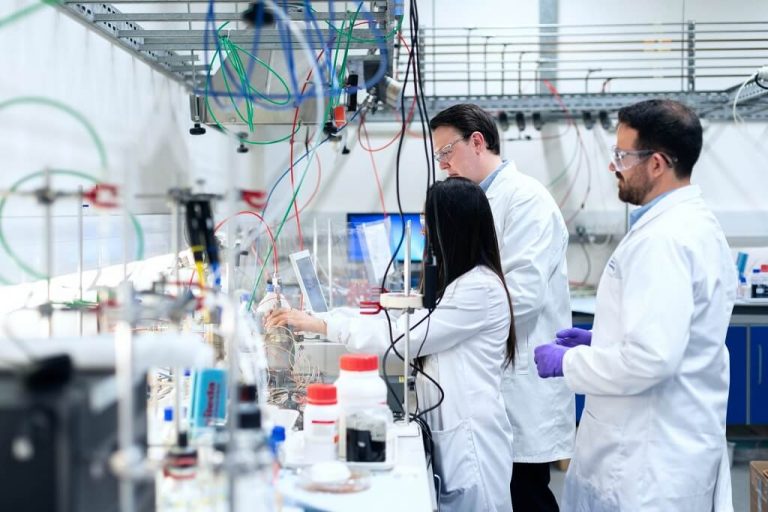Table of Contents [show]
When water filtration standards are properly adhered to, modern day life
continues to improve. These standards better enable us to avoid contaminants, pesticides, heavy metals, dissolved solids, and others commonly found in our own local water sources. Tap water may not be as safe as it may appear, but it is easily remedied. By finding and investing in only NSF certified water filtration
products, you put your personal health at the top of the list.
An NSF certified water guards the members of your household against various
contaminants, bacteria, waste, odors, and unsavory flavors. By maintaining stringent standards, manufacturers
must keep their production, products, and manufacturing at a high level, or risk losing certification. By
investing in a properly certified water filtration device, you are ensuring that your family is provided with
the best. And, when it comes to your personal health, how can you not aim for top quality?
What are NSF Water Filter Certifications?
Widely recognized as the “public health and safety organization”, NSF International strives to ensure certified products meet strict standards, in order to meet manufacturer's
claims. When products adorn the NSF mark, it shows that the product has been thoroughly tested and proven in
order to be certified by the NSF. With such assurances, it's easy to see why consumers specifically seek out products featuring the NSF mark for
the highest of consumer confidences.
Dating back to the 1940s, NSF began as a nonprofit organization. Initial projects included implementing and maintaining soda fountain
cleanliness standards, as the National Sanitation Federation. Once testing expanded to a variety of health,
beauty, cleaning, cooking, environmental, and food safety, to name a few, they officially changed their name to
NSF. Since then, the NSF has grown to become a globally recognized organization, known for strict standards.
As with most of the products certified by the NSF, water filters are no
exception. When a water filter is awarded an NSF certification, consumers may rest assured that it has performed well in testing, as well as providing extensive product
information. In short, an NSF certification is a guarantee that the product removes exactly what it claims to
remove from water sources.
Essentially, if the manufacturer makes claims that their filter removes
contaminants, viruses, and bacteria, and displays an NSF certification, you can bet it does exactly as they
claim.
Steps to Choosing the Best Water Treatment System
When you begin searching for the most suitable water filtration system for
your home or business, you must begin by educating yourself on the contents of your water source. When it is supplied by a private well, private testing must be conducting. Otherwise, local water treatment facilities are typically required to
provide customers with an annual water report, which goes great lengths in explaining the contents of treated
tap water. You always have the option, regardless of how you receive your tap water, to go through an
independent lab for testing. Why is this important?
When you need an exhaustive list of minerals and contaminants, you can't get
much better than an independent laboratory. When you have a better understanding of the contents of your tap
water, you can make an informed decision on your water treatment system of choice. Water purification units will
remove a whole slew of contaminants, depending on the materials utilized within filter cartridges, stages, and
more. Some of these contaminants include: asbestos, arsenic, chlorine, chloramine, dioxines, fluoride, insecticides, lead, mercury, nitrates, pesticides, pharmaceuticals, radioactive material, salt, and more.
The aforementioned contaminates are just part of an extensive list of
contaminants capable of being identified in tap water. Contaminants are classified by various characteristics,
into specific groups, including: health, emerging, aesthetic, and microbiological. So, if something really only
tends to affect the taste or smell of the water overall, it is often improved by aesthetic filtering. Simple
types of filtering, such as filter pitchers, tap filters, filter bottles, and point-of-use systems do a great job of improving such complaints.

Understanding the NSF/ANSI 53 Certification
The NSF 53 certification is recognized on a national level, as a minimum standard for point-of-entry, and point-of-use water filtration systems. Products provided with this level of certification are guaranteed to remove specific contaminants, of which pose a treat to your overall health. Some of these contaminants are found in both private and public water settings, including: Cryptosporidium, Giardia, lead, VOCs, and more. With so many questionable companies out there, it's a relief to have an organization such as the NSF to stand up for consumer rights.
By analyzing the overall integrity of the water treatment system, material safety and structural integrity are both thoroughly examined before certification. The NSF independently tests any potentially 53 certified product, in order to ensure the manufacturer's claims are accurate, and up to par. With most NSF 53 certified products, carbon filtration is typically used to achieve various claims. This better enables health conscious individuals to shop in an informed fashion, to better understand their needs and where their money is going. Aging and old pipes, typically comprised of some level of lead, tend to break down and leech heavy metals into resulting water. While a replacement is the best option, some of these pipes may be further down the line, out of control of the homeowner.
Understanding the NSF/ANSI 401 Certification
The 401 certification set forth by the NSF is focused on emerging compounds, as well as incidental contaminants. This growing list of concerning materials, such as pesticides, herbicides, pharmaceuticals, and more, have become an issue with the public. With the prescription drug crisis growing day by day, residents on a national scale become concerned on a daily basis. For this specific reason, the 401 standard was created by the NSF.
Local water is being further contaminated by pharmaceuticals through the flushing, natural passing, or disposal of prescription drugs. In addition to over-the-counter meds, byproducts of the agricultural industry, as well as industrial byproducts, standard 401 has become invaluable. By utilizing carbon technology, the removal of potentially harmful contaminants has never been more affordable. With the ability of being sourced through rapidly renewable resources, such as coconut fibers, activated carbon is the work horse we need. NSF 401 certification ensures products guard against: Ibuprofen, Naproxen, Phenytoin, Metolachlor, Estrone, Trimethoprim, and more.

